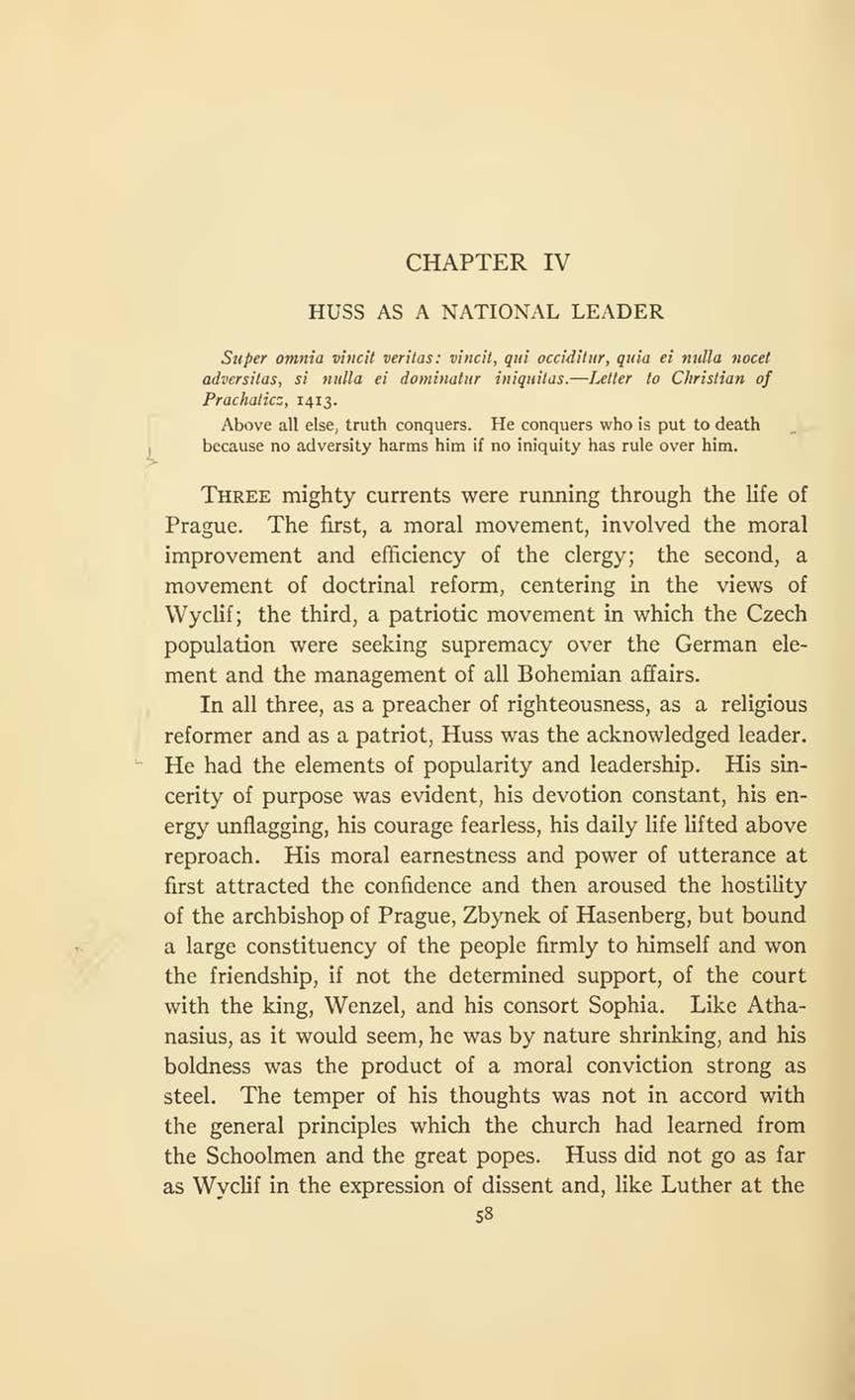CHAPTER IV
HUSS AS A NATIONAL LEADER
Super omnia vincit veritas: vincit, qui occiditur, quia ei nulla nocet adversitas, si nulla ei dominatur iniquitas.—Letter to Christian of Prachaticz, 1413.
Above all else, truth conquers. He conquers who is put to death because no adversity harms him if no iniquity has rule over him.
Three mighty currents were running through the life of Prague. The first, a moral movement, involved the moral improvement and efficiency of the clergy; the second, a movement of doctrinal reform, centering in the views of Wyclif; the third, a patriotic movement in which the Czech population were seeking supremacy over the German element and the management of all Bohemian affairs.
In all three, as a preacher of righteousness, as a religious reformer and as a patriot, Huss was the acknowledged leader. He had the elements of popularity and leadership. His sincerity of purpose was evident, his devotion constant, his energy unflagging, his courage fearless, his daily life lifted above reproach. His moral earnestness and power of utterance at first attracted the confidence and then aroused the hostility of the archbishop of Prague, Zbynek of Hasenberg, but bound a large constituency of the people firmly to himself and won the friendship, if not the determined support, of the court with the king, Wenzel, and his consort Sophia. Like Athanasius, as it would seem, he was by nature shrinking, and his boldness was the product of a moral conviction strong as steel. The temper of his thoughts was not in accord with the general principles which the church had learned from the Schoolmen and the great popes. Huss did not go as far as Wyclif in the expression of dissent and, like Luther at the
58
